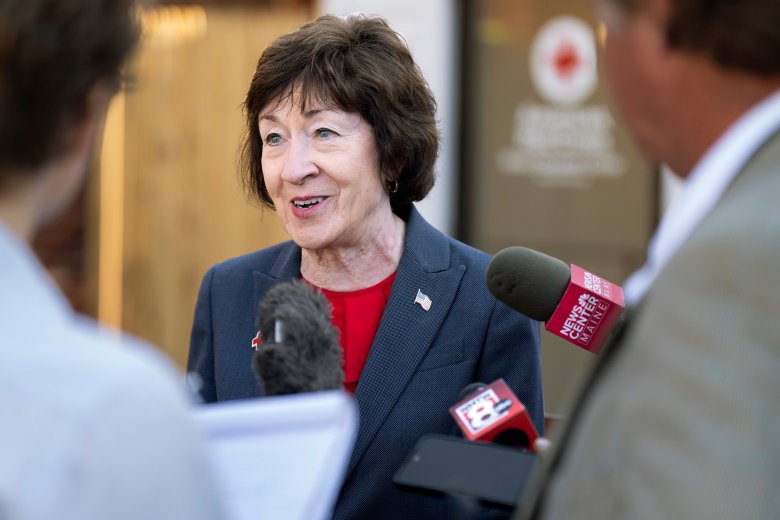U.S. Senator Susan Collins expressed optimism on Monday regarding a potential agreement to reopen the federal government by the end of the week. Collins, who serves as the top Senate appropriator, indicated that bipartisan discussions aimed at resolving the ongoing shutdown may accelerate following the elections scheduled for Tuesday, November 7, 2023.
As the government enters its 35th day of shutdown, Collins emphasized the urgency of the situation, citing discussions she had with several Democratic colleagues and Republican partners. “I don’t want to create false hopes out there, but that is based on discussions that I’ve had with numerous Democrats as recently as last night,” she said. She noted that a compromise could hinge on negotiations over crucial subsidies associated with the Affordable Care Act.
Impact of the Shutdown
The effects of the shutdown are increasingly felt across the nation, with rising concerns over food assistance programs, delayed payments to federal workers, and disruptions at airports due to staffing shortages among air traffic controllers. Collins remarked, “I hope that once we get past the elections tomorrow… we will see this entirely unnecessary shutdown come to an end.”
The shutdown began on October 1, 2023, after Senate Democrats declined to support a Republican stopgap funding bill designed to keep the government operational while lawmakers continued to work on annual spending bills. This stopgap legislation had already passed the House, where only U.S. Rep. Jared Golden voted in favor from the Democratic side. In contrast, Democrats proposed their own funding bill focused on extending subsidies for health care plans under the Affordable Care Act, which are set to expire at the end of the year.
Political Tensions and Responses
Democrats argue that addressing the ACA subsidies is vital, as this is a strategic moment to compel Republicans, who control both chambers of Congress, to negotiate. The stopgap funding bill requires 60 votes in the Senate, creating a challenging path forward. Maine Governor Janet Mills criticized the Republican leadership, stating that the situation represents more than a stalemate. “It’s holding food hostage for political gain,” she said, referring to the uncertainty surrounding the Supplemental Nutrition Assistance Program (SNAP), which faced funding shortages.
Following the shutdown, President Donald Trump announced compliance with a court order to utilize approximately $5 billion in federal contingency funding for SNAP benefits, which are vital for many families. However, the details regarding how beneficiaries will receive these funds remain unclear, raising concerns about delays in November payments for millions. Mills also criticized the administration for allocating resources towards a $350 million ballroom renovation at the White House instead of focusing on negotiations to preserve health care for Americans.
State officials have confirmed that Maine has sufficient funding to continue paying around 2,000 federally funded state employees through November. Representative Chellie Pingree defended the Democratic approach, asserting that the administration has violated the appropriations process, which has resulted in widespread frustration among constituents. “People are really angry… they’re just feeling the strain even more so now,” Pingree noted.
Despite the ongoing challenges, Collins remains engaged in bipartisan discussions aimed at reopening the government. She expressed her support for extending ACA subsidies but suggested that any extension should consider family income caps. Collins hopes that a public commitment from Senate Majority Leader John Thune to bring the legislation to the floor will encourage Democratic cooperation.
While Republicans have indicated they will not address ACA subsidies until the government is reopened, Collins remains hopeful that progress can be made once a resolution is reached. “I believe that once we open government that we will turn to that issue very shortly,” she stated.
This report includes material from the Associated Press, with contributions from staff writer Rachel Ohm.







